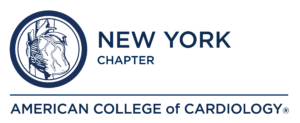Fall 2016
| November 1, 2016 The seasons turn, and change is in the air. Our annual Scientific Session saw a change in venue to the Chelsea neighborhood of Manhattan. Located only four blocks from Penn Station at the Hotel Eventi, the event also featured a meet-and-greet cocktail reception the evening prior to the Society’s 88th Annual Scientific Session. The demographics of our patient population continue to evolve, as does our paradigms of care, driven by new drugs and devices, cost, societal concerns, and politics.The focus of our Annual Meeting was particularly timely in this regard. The event, titled “Cardiology for the Ages: Tailoring Care for our Aging Population,” featured a distinguished faculty, providing both a broad overview and helpful advice to the practitioner for these changing times. Attendee feedback throughout the meeting was outstanding, and many I talked to were favorably impressed with the organization, hotel, service and the proximity to transportation.In other exciting news, we have established a new partnership with two cardiological societies in Argentina to facilitate chapter exchange. The purposes of the partnership include promoting the academic exchange of young physicians between hosting medical institutions, organizing joint sessions during selected meetings, promoting shared registries and developing consensus documents.The annual meeting of the Argentine Congress of Cardiology is held in October in Buenos Aires, and the National Congress of Cardiology is held in June in Rosario. Other specialty meetings are also held on an annual basis. We are currently in the process of defining areas of shared interest and potential collaboration and soliciting interest in and developing a list of institutions interested in hosting visiting cardiologists. At our State Chapter meeting, we have begun to explore the possibilities of providing seed money grants for pilot projects of new investigators. Another hot topic was how to assess the interest of our trainees and training programs, organize and select a team for participation in National ACC Scientific Session Jeopardy Competition. At this time, any and all suggestions are welcome Finally the trick-or-treat season has also brought us the final version of MACRA from CMS. MACRA reflects the beginning of a sea change in health care emphasis and reimbursement from fee for service care to quality- and value-based care. Most providers will be participating in the merit-based incentive payment system (MIPS), which will replace the current meaningful use, physician quality reporting system and the value-based payment modifier. Due to advocacy efforts, new providers and providers who bill Medicare less than $30,000/ year or provide care to fewer than 100 Medicare patients are not required to participate in MACRA. Performance data can be collected as early as Jan. 1, 2017, although CMS has agreed to allow practitioners to begin collecting data as late as Oct. 2, 2017. The data collected in 2017 will determine payment adjustments beginning Jan. 1, 2019. Failure to participate will result in an automatic 4% decrease in payments, and submission of a full year of data is required for the possibility of receiving a positive payment adjustment of up to 4% in 2019. You can learn more about the program from the CMS website, (https://qpp.cms.gov/). An excellent and local choice to learn more about how to prepare yourself for the significant changes in practice and reimbursement that MACRA will bring is the New York Cardiac Center Lecture,featuring Paul N. Casale, MD, MPH, FACC – “MACRA: a Paradigm Shift in How CMS will Pay Clinicians.” It will be held on Dec. 07, 2016, from 7 to 9 p.m. in the Uris Auditorium on the Weill Cornell campus. Look forward to seeing you there! William E. Lawson, MD, FACC | Upstate Governor
|


